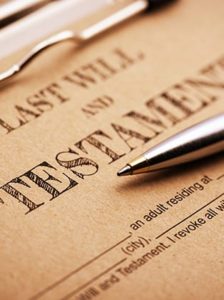“How often should I come back to see you for a review of my estate planning documents?” This is a question which clients frequently ask us in our estate practice. In order to answer this question, first we should state that there is no one answer that “fits all.” As with many aspects of the law, the answer might best be stated as “it depends.” The answer may vary depending on the client’s age, health, and personal situation.
That having been said, in our practice we give two guiding measures for when to come in for a review. First, we usually encourage a review every three to five years. With older clients, we often will shorten that to every two to three years. While we do not discourage more frequent reviews, this at least gives a client a timeframe to keep in mind.
In addition, we encourage clients to come in for a review if they have a major life event. This would include matters such as:
- Birth of a new child or grandchild;
- Engagement or Marriage;
- Separation or divorce;
- Buying, selling, or starting a business;
- Retirement;
- Change of financial circumstance such as receiving an inheritance or winning the lottery;
- Onset of a disability;
- Diagnosis of a major health issue;
- Death of beneficiaries or fiduciaries named in your documents.
Sometimes a review is precipitated by a significant change in the law. For example, in 2011 Florida adopted the Florida Power of Attorney Act found in Chapter 709, Fla. Stat. This implemented a number of significant changes in what constitutes a valid Florida Durable Power of Attorney (“DPOA”). These changes made updating one’s DPOA an important priority.
The importance of updating documents can be seen in a recent real life example (all of the names have been changed). A prospective client came in to our office in order to initiate the probate of their deceased loved one’s estate—we’ll call the decedent “Dorothy”. Dorothy had gone to an attorney over twenty years earlier in order to establish her Will. She named her brother “Bob” and her sister “Cathy” as her primary beneficiaries. Bob was named as Personal Representative of her estate with Cathy as the alternate. All of this would all have been great except for the fact that Bob and Cathy both predeceased Dorothy. After they died, Dorothy meant to update her Will but she never got around to it. Because of this, the Will was no good and the estate ended up being intestate.
Having an estate plan in place is very important to protect both you and your loved ones. Having a current estate plan in place is even more important. 

